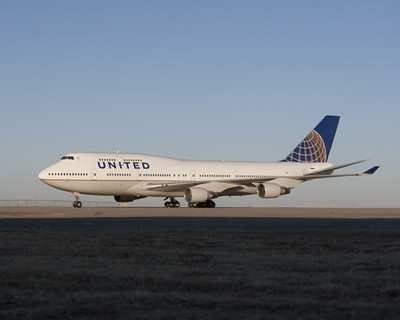Wed, Nov 30, 2011
SOC Grant Concludes 18 Month Sometimes-Contentious Integration
Program
It's finally official! United Continental Holdings announced
Wednesday that it received FAA approval for a single operating
certificate, marking another significant milestone in the
integration of United and Continental Airlines.

The two carriers went through a rigorous 18-month process of
aligning operating policies and procedures to obtain a single
operating certificate from the FAA. A team of more than 500
employees from both carriers worked together to evaluate closely
each pre-integration program, process and operating specification
from both airlines to determine the best choice for the new United.
The team streamlined more than 440 operational manuals, programs
and procedures down to approximately 260 manuals for the new United
– a process that involved roughly 2,000 changes.
"I would like to thank the teams at United, Continental, the FAA,
the Department of Transportation and the many regulatory
authorities around the globe who put tremendous time and effort
into our achieving a single operating certificate," said United's
president and chief executive officer, Jeff Smisek. "While we have
much work ahead of us as we integrate these two great carriers,
this is a significant milestone."
The process was not always a smooth one. United's pilots,
represented by ALPA, fought the imposition of Continental's
training and cockpit procedures on pilots flying for United. The
union had filed a lawsuit in U.S. District Court in which Judge
Sterlind Johnson ruled that the argument that differences in
training would endanger the public was "too speculative" to delay
the issuance of an SOC. The pilots also circulated a 101-page
report critical of Continental's use of simulators for training
around Capitol Hill in an effort to make their
case.
This regulatory milestone, while significant from an operational
policies and procedures perspective, does not change how customers
interact with the airline. Customers of United and Continental will
continue to shop for flights, obtain seat assignments and check
flight status on each carrier's respective website until the
company migrates to a single passenger service system in the first
quarter of 2012. At that point, from a customer's perspective, the
two carriers will function as one airline.
Effective Wednesday, air traffic control communications will refer
to all United and Continental flights as "United." United and
Continental announced their merger in May 2010 and closed the
transaction on Oct. 1, 2010.
More News
Terminal Radar Service Area Airspace surrounding designated airports wherein ATC provides radar vectoring, sequencing, and separation on a full-time basis for all IFR and participa>[...]
Very High Frequency (VHF) The frequency band between 30 and 300 MHz. Portions of this band, 108 to 118 MHz, are used for certain NAVAIDs; 118 to 136 MHz are used for civil air/grou>[...]
“From approximately November 2021 through January 2022, Britton-Harr, acting on behalf of AeroVanti, entered into lease-purchase agreements for five Piaggio-manufactured airc>[...]
Also: Virtual FLRAA Prototype, IFR-Capable Autonomous A/C, NS-32 Crew, Golden Dome Missile Defense Bombardier announced that the first production Global 8000 successfully completed>[...]
Aero Linx: The 1-26 Association (Schweizer) The Association’s goal is to foster the helpfulness, the camaraderie, and the opportunity for head-to-head competition that is fou>[...]
 ANN's Daily Aero-Term (05.29.25): Terminal Radar Service Area
ANN's Daily Aero-Term (05.29.25): Terminal Radar Service Area ANN's Daily Aero-Term (05.30.25): Very High Frequency (VHF)
ANN's Daily Aero-Term (05.30.25): Very High Frequency (VHF) Aero-News: Quote of the Day (05.30.25)
Aero-News: Quote of the Day (05.30.25) Airborne 05.23.25: Global 8000, Qatar B747 Accepted, Aviation Merit Badge
Airborne 05.23.25: Global 8000, Qatar B747 Accepted, Aviation Merit Badge ANN's Daily Aero-Linx (05.30.25)
ANN's Daily Aero-Linx (05.30.25)



